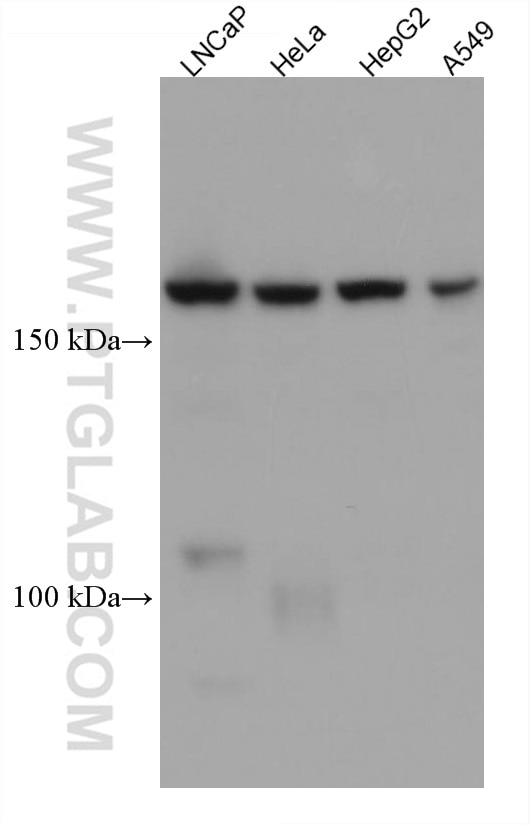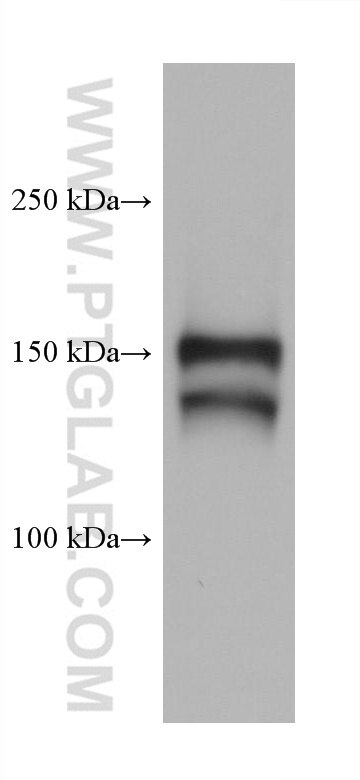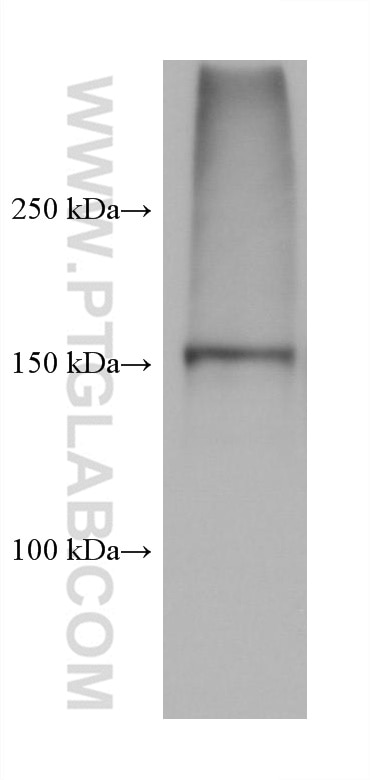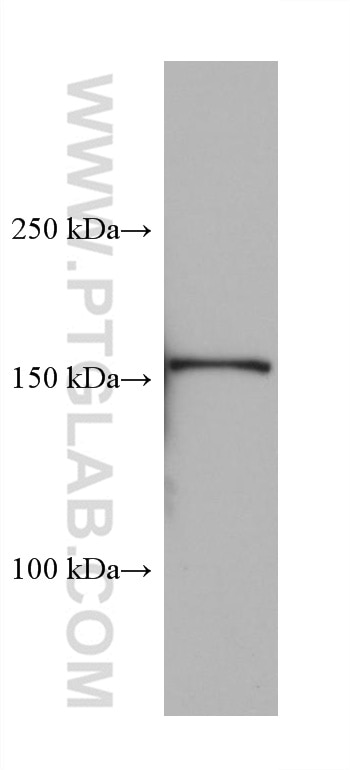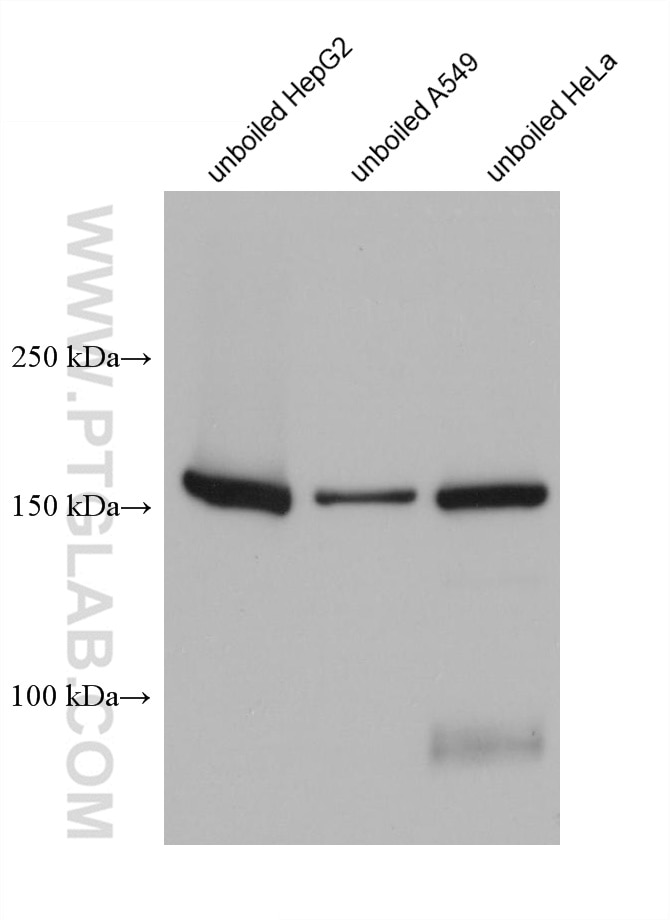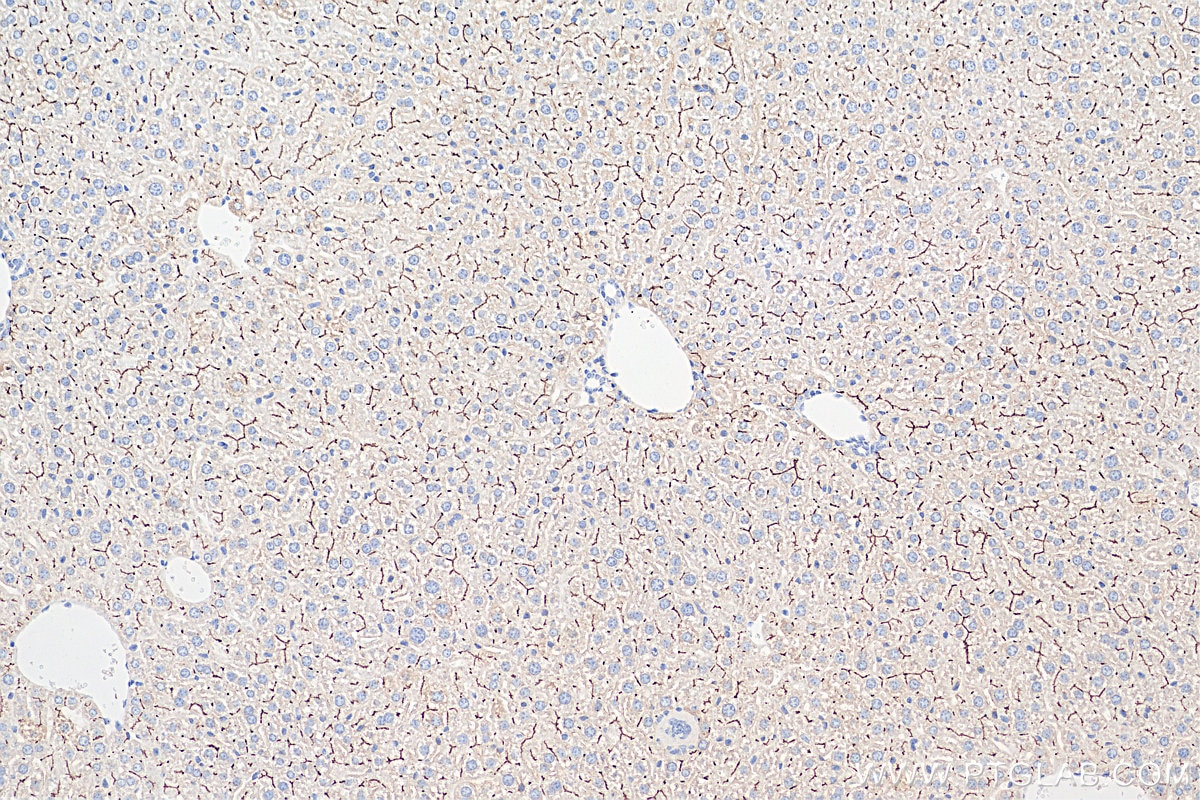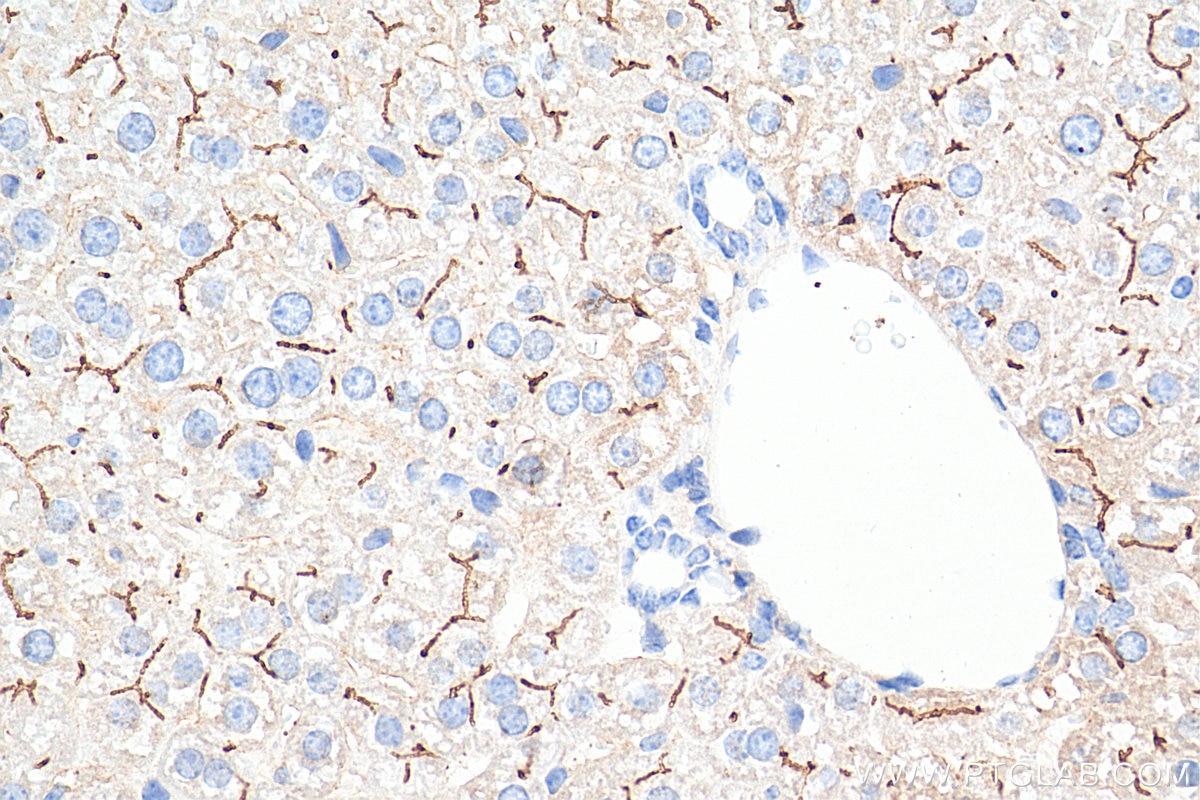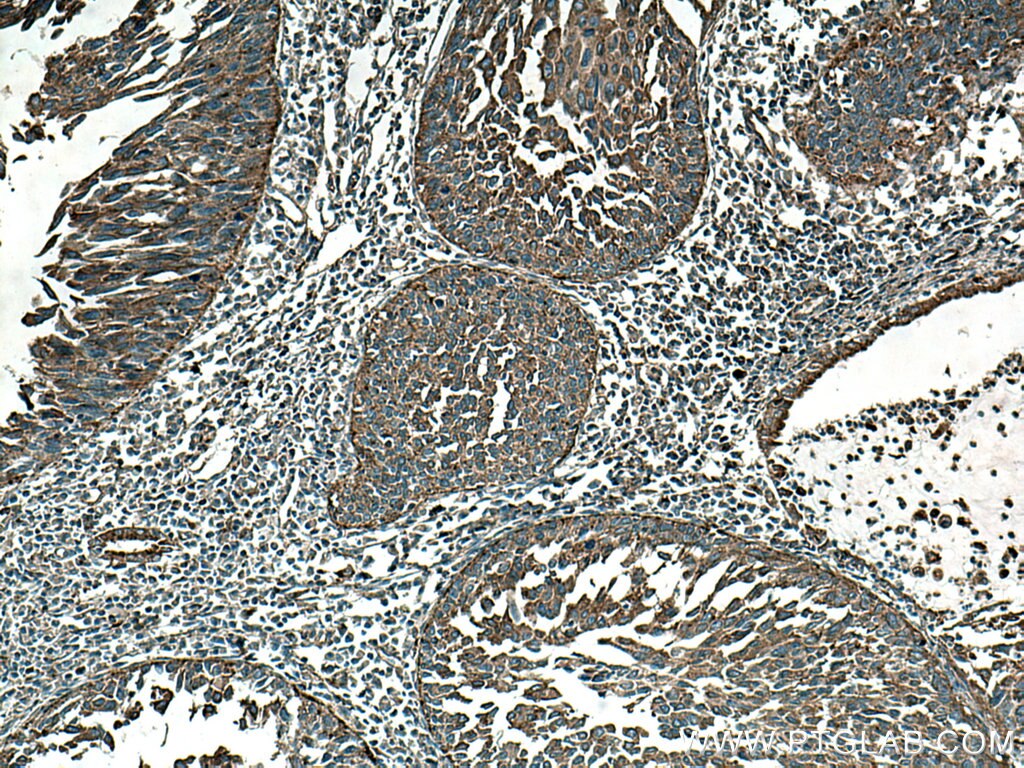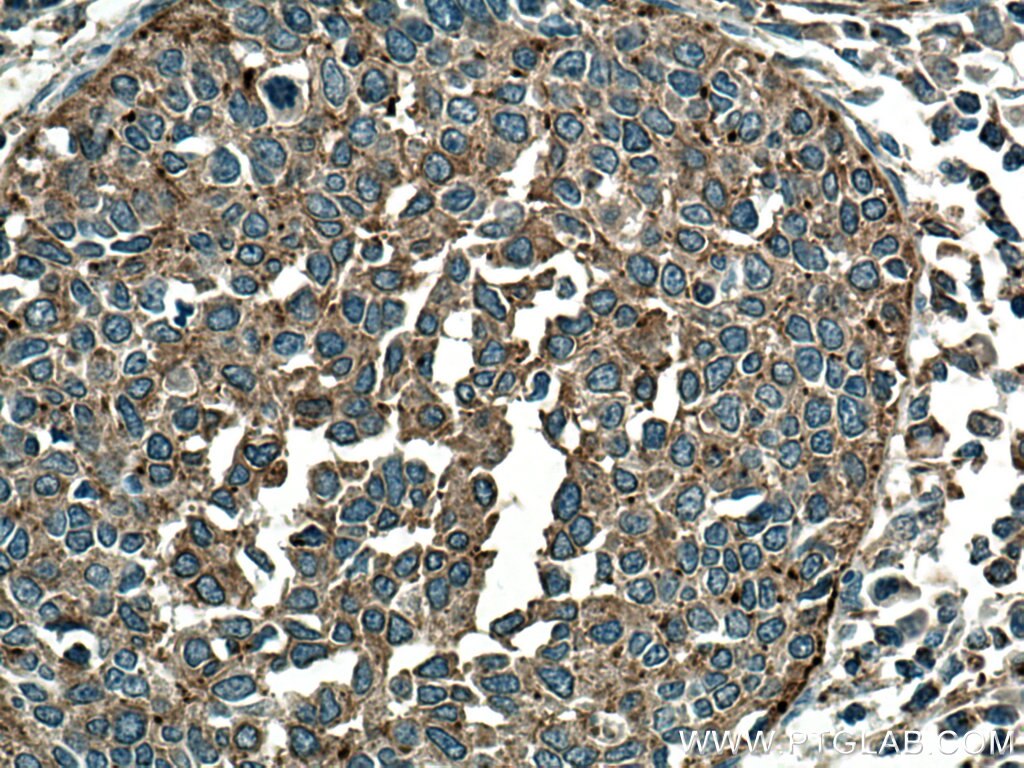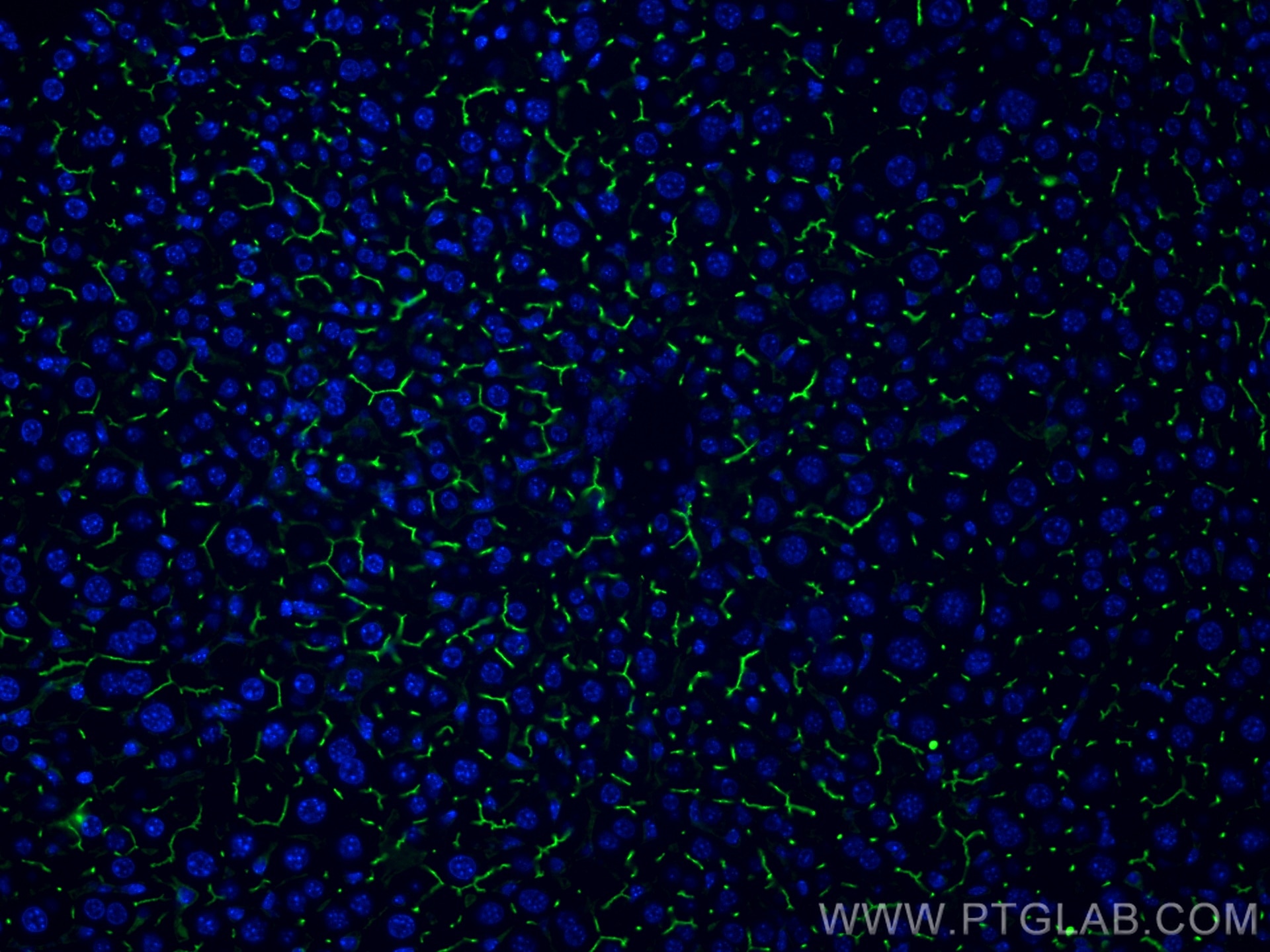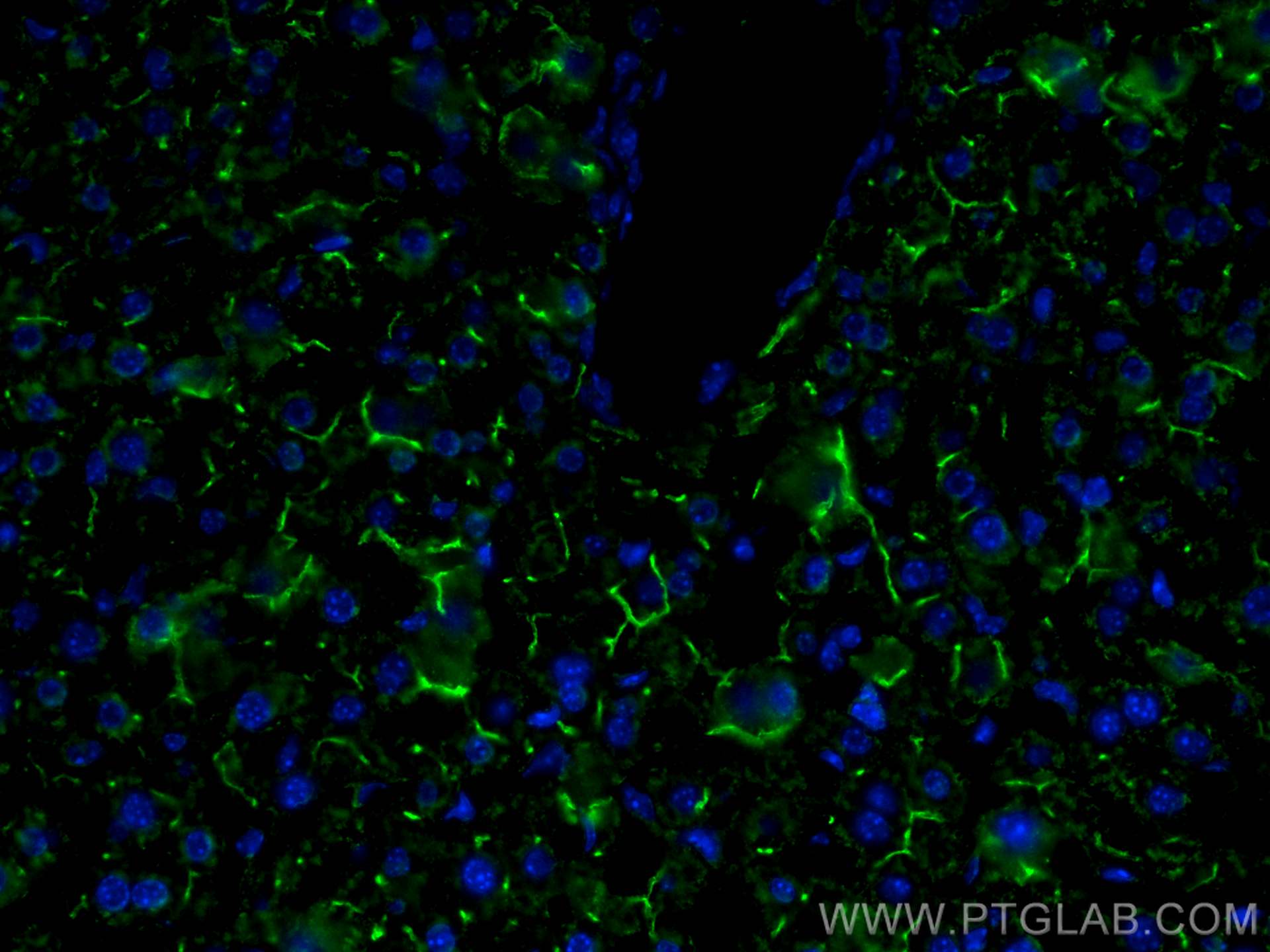BSEP Monoklonaler Antikörper
BSEP Monoklonal Antikörper für WB, IHC, IF-P, ELISA
Wirt / Isotyp
Maus / IgG1
Getestete Reaktivität
Hausschwein, human, Maus, Ratte
Anwendung
WB, IHC, IF-P, ELISA
Konjugation
Unkonjugiert
CloneNo.
3C11D5
Kat-Nr. : 67512-1-Ig
Synonyme
Geprüfte Anwendungen
| Erfolgreiche Detektion in WB | LNCaP-Zellen, A549-Zellen, HeLa-Zellen, Mauslebergewebe, Hausschwein-Lungengewebe, Rattenlebergewebe, ungekochte HepG2-Zellen |
| Erfolgreiche Detektion in IHC | Mauslebergewebe, humanes Zervixkarzinomgewebe Hinweis: Antigendemaskierung mit TE-Puffer pH 9,0 empfohlen. (*) Wahlweise kann die Antigendemaskierung auch mit Citratpuffer pH 6,0 erfolgen. |
| Erfolgreiche Detektion in IF-P | Mauslebergewebe |
Empfohlene Verdünnung
| Anwendung | Verdünnung |
|---|---|
| Western Blot (WB) | WB : 1:5000-1:50000 |
| Immunhistochemie (IHC) | IHC : 1:8000-1:32000 |
| Immunfluoreszenz (IF)-P | IF-P : 1:5000-1:20000 |
| It is recommended that this reagent should be titrated in each testing system to obtain optimal results. | |
| Sample-dependent, check data in validation data gallery | |
Veröffentlichte Anwendungen
| WB | See 9 publications below |
| IHC | See 1 publications below |
| IF | See 1 publications below |
Produktinformation
67512-1-Ig bindet in WB, IHC, IF-P, ELISA BSEP und zeigt Reaktivität mit Hausschwein, human, Maus, Ratten
| Getestete Reaktivität | Hausschwein, human, Maus, Ratte |
| In Publikationen genannte Reaktivität | human, Maus, Ratte |
| Wirt / Isotyp | Maus / IgG1 |
| Klonalität | Monoklonal |
| Typ | Antikörper |
| Immunogen | BSEP fusion protein Ag29135 |
| Vollständiger Name | ATP-binding cassette, sub-family B (MDR/TAP), member 11 |
| Berechnetes Molekulargewicht | 146 kDa |
| Beobachtetes Molekulargewicht | 150-160 kDa |
| GenBank-Zugangsnummer | NM_003742 |
| Gene symbol | BSEP |
| Gene ID (NCBI) | 8647 |
| Konjugation | Unkonjugiert |
| Form | Liquid |
| Reinigungsmethode | Protein-G-Reinigung |
| Lagerungspuffer | PBS with 0.02% sodium azide and 50% glycerol |
| Lagerungsbedingungen | Bei -20°C lagern. Nach dem Versand ein Jahr lang stabil Aliquotieren ist bei -20oC Lagerung nicht notwendig. 20ul Größen enthalten 0,1% BSA. |
Hintergrundinformationen
ABCB11, also named as BSEP, belongs to the ABC transporter superfamily. ABCB11 involved in the ATP-dependent secretion of bile salts into the canaliculus of hepatocytes. Mutation of ABCB11 will cause the progressive familial intrahepatic cholestasis type 2 (PFIC2) and the benign recurrent intrahepatic cholestasis type 2 (BRIC2). Genetic variations in ABCB11 may play a role in drug-induced cholestasis causing liver damage. The calculated MW of ABCB11 is 146 kDa, 67512-1-Ig can detect bands around 150 kDa. It's reported that ABCB11 has several N-glycosylation sites, the observed higher molecular mass may due to posttranslational N-glycosylation. (PMID: 9545351, 24359682)
Protokolle
| PRODUKTSPEZIFISCHE PROTOKOLLE | |
|---|---|
| WB protocol for BSEP antibody 67512-1-Ig | Protokoll herunterladen |
| IHC protocol for BSEP antibody 67512-1-Ig | Protokoll herunterladenl |
| IF protocol for BSEP antibody 67512-1-Ig | Protokoll herunterladen |
| STANDARD-PROTOKOLLE | |
|---|---|
| Klicken Sie hier, um unsere Standardprotokolle anzuzeigen |
Publikationen
| Species | Application | Title |
|---|---|---|
Front Pharmacol Vitamin C and vitamin D3 alleviate metabolic-associated fatty liver disease by regulating the gut microbiota and bile acid metabolism via the gut-liver axis | ||
Appl Biochem Biotechnol Sphincter of Oddi Dysfunction Induces Gallstone by Inhibiting the Expression of ABCB11 via PKC-α | ||
Biomed Pharmacother Lupeol improves bile acid metabolism and metabolic dysfunction-associated steatotic liver disease in mice via FXR signaling pathway and gut-liver axis | ||
Toxicol Appl Pharmacol Pirfenidone ameliorates ANIT-induced cholestatic liver injury via modulation of FXR, NF-кB/TNF-α, and Wnt/GSK-3β/β-catenin signaling pathways | ||
Gut Microbes Bacteroides fragilis alleviates necrotizing enterocolitis through restoring bile acid metabolism balance using bile salt hydrolase and inhibiting FXR-NLRP3 signaling pathway | ||
J Control Release ROS-responsive nanoparticle delivery of obeticholic acid mitigate primary sclerosing cholangitis |
